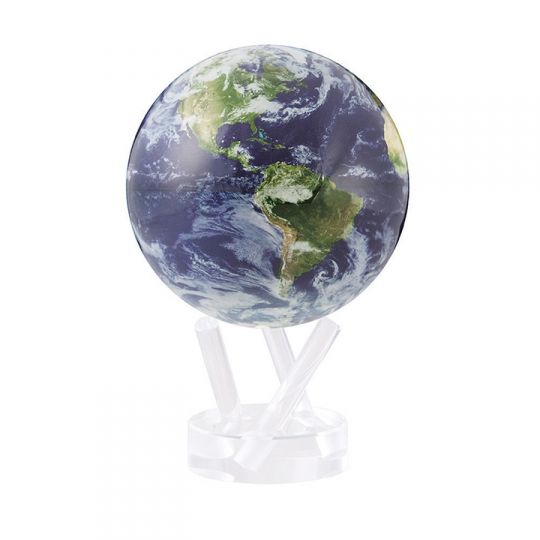Attracting and keeping talented people are key parts of an organization’s success. In employee engagement surveys, “feeling appreciated” is consistently given as a key reason that people choose to stay with an organization (Gallup). How can you make your business a place where your people feel appreciated? Ideally, an employee appreciation and recognition strategy is consistent, meaningful, and personal. Therefore, the best approach will offer opportunities for day-to-day, informal, and formal recognition. A strong plan honors people, events, efforts, and achievements and needs a great team to implement it. Who is in charge of employee appreciation in your organization?
Strategy and Implementation
If we look at employee recognition as a core business strategy, we find that the best programs are not limited to HR promotions. However, Human Resources is the place to start. HR keeps the personnel records, knows the people, and has the framework to implement programs.
First, look at your organization’s mission, vision, and values for guidance on how to build a culture of appreciation. What employee attributes, actions, and talents are necessary for your organization to succeed? Examples are: sales, innovation, customer service, attention to detail, communication, knowledge, speed, reliability, safety, resourcefulness, and collaboration.
Then engage your team and find out why, when, and how they want to be recognized. Encourage consistency, such as daily or weekly opportunities for electronic thank you notes, weekly or monthly meetings or messages for announcing exemplary achievements, and monthly or yearly recognition of tenure and outstanding performance.
We also advise that the recognition be meaningful — it should be significant and identify with the person, event, or achievement. In other words — a gift card for everyone for every event diminishes the impact of the recognition. We also recommend transparency throughout the recognition process, this is why it is important to start with your organizational mission and the key employee attributes that you want to honor and encourage. Know what your target is, and how your people can hit it.
Finally, the recognition should be personal. Include the who, the what, and the why. If a gift or award is presented, ensure that the gift suits the recipient and that the award is engraved correctly.
Effective recognition is company-wide, part of the culture, and engages people at all levels and in all departments. Be certain that each department or division has a voice in the process from the outset.
Honoring People, Events, Efforts, and Achievements
People
We can honor people for their tenure, for their talents, and for career milestones. Many workplaces celebrate the big milestone work anniversaries with a tiered gift program. They offer a variety of items at each tier. At Borsheims, our gifts in our corporate programs are carefully chosen to reward at five year increments. In working with our clients, we have also noticed the importance of recognizing the one year mark too!
Honoring your people for their career milestones is a good practice. Earning new certifications or degrees, especially for those in the educational, financial, and medical fields, is reason to celebrate. Recognizing promotions and employees who take on additional responsibilities is a way to make sure that your talented people stay.
Finally, retirement is important to celebrate with your team. Honoring one of your own for their contributions helps the transition for all. A culture of appreciation can be built into your organization from the hire through the retire.
Events
Celebrating events is another way to bring your people together. Birthdays, anniversaries, births, and weddings are simple to acknowledge at staff meetings. Your people are moms, dads, and caring people outside of work. Observing personal milestones is a great way to show that you respect and appreciate your people for who they are without the job title.
Efforts
Honoring effort is also essential to building a culture of appreciation. Sometimes there is not an “end” to celebrate, rather there is an ongoing process to praise. Recognizing the work of the Wellness Committee ensures that they continue to work on behalf of all employees. The IT department usually only hears about the problems, but their ongoing behind the scenes work is necessary for a smoothly functioning workplace. Volunteer work has become integrated into the workday at many for-profit businesses. Recognizing those who serve shows your commitment to the community.
Innovation should also be celebrated, even if the idea didn’t work — because the next idea might be The Big One. Encouraging and rewarding new ideas motivates employees to be even more productive and original.
Achievements
Finally, to recognize the efforts of staff who have gone above and beyond their normal job duties and have made a difference in their department or company, many organizations offer MVP awards on a monthly or yearly basis. Here at Borsheims, we have provided gifts and awards for a variety of organizations and workplace achievements, e.g. Employee of the Year, President’s Club, and Million Dollar Club.
Day-to-Day, Informal, and Formal Recognition
Many organizations use a 360 model for day-to-day and informal appreciation. Use of peer-to-peer recognition systems have found to increase employee satisfaction — at one well-known company by 88%! Physiological effects of gratitude are also measurable. Research has proven that when you thank someone, it releases oxytocin, a hormone that makes people more relaxed, collaborative, and happy.
It’s simple to implement this type of appreciation, some workplaces offer special notecards for written messages which are placed on a central bulletin board. Others use electronic thank you notes which are public and accessible to all employees. The main thing is to ask your entire staff to incorporate gratitude into their workdays. Remember the importance of recognizing up and down the leadership chain and also honoring the unsung heroes of your organization.
Informal recognition can also be a part of regular staff meetings. Whether it’s an observance of a professional achievement or a personal celebration, take a moment to share the news with the team. It goes without saying that birthday cake is a great way to ensure that everyone arrives on time for a meeting.
Formal recognition may take the form of a plaque, award, or gift, often presented at an annual company event. For occasions like this, you want to ensure that the recognition is perceived as individual, meaningful, and valuable. Borsheims has 150 years of experience in finding the right award or gift at the right price for organizations of all types and sizes. We can provide a variety of awards made from crystal, glass, metal, or wood — and also take care of the engraving. Our in-house engravers can personalize gifts such as pens, watches, rings, glassware, bowls, and trays.
Cost of Employee Recognition
Based on limited data, we find that most organizations spend less than one percent of payroll on employee recognition. It’s a powerful–and cost-effective way to build employee loyalty. Studies find that increasing compensation does not necessarily increase engagement. In other words, a pay raise might make someone stay, but it won’t make them a better employee. Creating a culture that attracts and keeps talented people is good for you, good for them, and good for the bottom line.
Building a culture of recognition and appreciation will take time and effort, but the results are well worth the investment. Borsheims is proud to be a trusted partner with companies and their employees.

